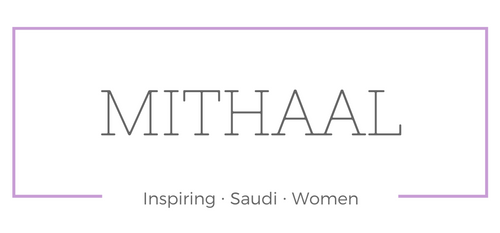Saudi Women and the Shura Council-An Interview with Dr. Hoda Al-Helaissi
/A female member of the Shoura Council has expressed hope that the stereotypical image of Saudi women in the West will be replaced by a better image to reflect their new role in the country’s affairs. In an exclusive interview with Dina Fouad of Arab News, Dr. Hoda Al-Helaissi said that Saudi women, thanks to the sincere support of the Custodian of the Two Holy Mosques, have achieved remarkable progress in all areas.
The full text of the interview follows:
How do you view the current position of Saudi women in our society?
Saudi Arabia is a young country and it is developing at an incredibly fast speed. We have done in 80 years what the rest of the world did in centuries. Throughout history, Arab women have played a fundamental role in Saudi society and have always been significant to the community. Progress and development around the world has been achieved through the education of both girls and boys, and our country’s leaders understood its importance from the very beginning.
What roles do you believe Saudi women can undertake within KSA?
First of all let me say that the traditional role of being a wife and mother is very fulfilling and just as important as being a career woman. There is something special in bringing up your children in the best way possible, knowing that they will be part of the generation that will take over from ours.
Secondly, if we are talking about the careers that Saudi women can hold, the last few years have shown us that there were very few jobs available to Saudi women in reality. However, I believe the time has come for us to reach the stage where we no longer look at a candidate for a certain position based on gender; rather we need to consider whether or not this person will do the job well.
Following the recently-concluded municipal elections where women received just over 20 seats across the Kingdom, to what extent do you think the elections will affect Saudi society?
It is indeed amazing that so many seats were won. We express our heart-felt congratulations to the winners. We believe that from the time women were included in the elections, they were declared winners automatically in a sense. Initially, a lot of people believed that there would be no female winners in the municipalities.
We all know that change in our society is a slow process — slow according to western values but not according to ours. For change to last, it has to happen from within and not because it is imposed by outside forces, otherwise it will fail. So I believe that our society is changing as part of its natural evolution and that the municipal elections are just one part of many changes to come.
How important is it to have women in the Shoura Council? What kind of changes has been made since women entered the Council?
There is no doubt that having women in the Shoura Council is important. But having women in all kinds of other jobs is equally important. Women are half of society and practically they participate in the job market and stimulate the economy. Just as society has gotten used to having women in the Shoura, which at the end of the day is a job, society will also get used to finding women in other fields.
Women’s dreams of becoming members of the Shoura Council or running for municipal elections have become realities now. What other dreams do you have for Saudi Arabia?
I know that your question implies dreams just for women but I believe there are so many dreams that we collectively wish to see realized for Saudi Arabia regardless of gender, starting with peace and security, because without them all other things become meaningless.
I also dream that the stereotyped image of Saudi women be erased and replaced by a better image of their true role. I dream of a world that understands the beauty of Islam, the true and moderate version of this religion which belongs to yesterday, today and tomorrow and has nothing to do with terrorism. As for women, their road to higher places will be achieved simply because with time they will prove that they are up to the responsibility and the challenge.
Why do you think the topic of driving for women always remains a controversial issue in the Kingdom? Do you believe there are practical obstacles that keep women from driving?
This is an ongoing question asked over and over again by the Western press. Again, I believe that necessity and economics change everything.
As a Shoura member, how do you manage to balance between your family’s needs and the requirements of your national duties?
As I said earlier, being a member of the Shoura Council is a job and just like any other working woman whether in Saudi Arabia or elsewhere, I manage to balance between the two both areas of my life thanks to support of my family and husband. I have to stress that that the support of men in our families and society is vital to a woman. It is also crucial to understand that to be successful in any area of your life you need teamwork: Always consider the “we” rather that the “I”.
What do you think of the new generation? And how, as women, can we deal with these young people and the spread of all means of communication which may have an adverse effect on family relations?
Our new generation is our hope and our future. We must, at all costs, encourage and nurture our youth through education and the transfer of all kinds of values that our central to the creation of happy, healthy lives.
Originally Published on Arab News














